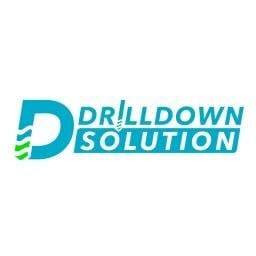Is a cash balance plan right for you and your practice?
For many dental practice owners, selling their business may be their main plan for retirement. However, there is no assurance that a buyer will want to purchase the clinic at the price the seller needs to fund retirement. However, a lesser-known technique—the cash balance plan—is another fantastic alternative for dental practice owners seeking a secure retirement.
If you’re a dentist who’s looking for a way to reach your retirement goals, you may have considered cash balance plans. These plans can be incredibly advantageous, offering dentists significant tax savings. In this blog post, we’ll discuss the advantages and drawbacks of cash balance plans, as well as which types of practices, benefit from them the most.
What is a cash balance plan, and how does it work?
A cash balance plan is a type of retirement plan that allows employers to set aside money for their employees’ future retirement. The employer contributes a calculated contribution for each eligible employee into the combined account, and the funds grow tax-deferred until they’re withdrawn at retirement. Employees can vest in the account (i.e. have rights to the funds) over time as an incentive to continued employment. When an employee retires, they can take distributions from the account as a lump sum, an annuity or a rollover to an IRA.
Who Benefits from a Cash Balance Plan?
Cash balance plans are suitable for self-employed professionals or employer groups. The tax-deferred growth in the account can help provide income during retirement. A cash balance plan is a strategy offers benefits for hiring and retaining experienced and valuable team members. Benefits can be greater for older employees and owners. Combining a 401(k) plan with a cash balance plan can help maximize owner benefits. A cash balance plan is ideal for a business with consistent cash flow and profitability. Tax savings offset the cost of employee contributions.
What are the Disadvantages of a Cash Balance Plan?
There are some drawbacks to consider with cash balance plans. First, they tend to be more expensive than traditional 401(k) plans. This is due to the professional fees and administrative costs associated with planning and implementation, which range from $1,500 -$3,000 range for self-employed or small groups the first year with lower maintenance in subsequent years. Annual reporting is required.
One disadvantage of cash balance plans is the required lifetime annuity option for retirement distributions (lump sum or IRA rollovers can also be options). If an employee chooses the annuity option, administration may continue for many years. Such permanence can be terminated under specific situations, such as company financial turmoil, the shut down of the firm, or if the plan sponsor simply decides to terminate the plan.
Contributions are not elective and must follow plan rules with regular annual contributions. Because of this, it’s critical for a practice to have consistent cash flow in order to fund contributions at the required level. A cash balance plan assumes a rate of return, typically 5%. If investment returns are higher, then future contributions may be lower and vice versa. The benefits of a cash balance policy are guaranteed to the employees regardless of investment returns. Since the employer is responsible for any investment shortfalls, conservative investments are recommended.
Despite these drawbacks, cash balance plans can still be advantageous.
What are the advantages of a cash balance plan?
One benefit of a cash balance plan is guaranteed income to the employees as defined in the plan.
Cash balance plans provide participants with the potential for much greater tax deferrals than ordinary 401(k) programs: up to $300,000 a year versus $67,500 for 401(k)s. Even with profit sharing and catch-up bonuses, 401(k) plans offer just a fraction of the tax deferrals that cash balance plans do. Pairing a 401(k) and a cash balance plan can maximize benefits for an owner.
Defined benefit plans, unlike defined contribution plans, do not require contributions from participants. They function more like a traditional pension than a defined contribution plan like a 401(k). A cash balance plan offers a defined benefit, in which an employer promises a certain and predetermined amount of money upon retirement. Cash balance plans are not required to be given to every employee; owners can pick which team members are eligible based on a variety of criteria, such as seniority or years of service. A cash balance plan may, in fact, be limited to the business owners and partners alone.
In a cash balance plan, an employer credits a participant’s account with a fixed percentage of the employee’s compensation, typically between 5% and 8% annually. From there the management of the money is up to the recipient. Like a 401(k) plan, a cash balance plan can be used to reward and encourage team member retention.
Another advantage to a cash balance plan is that dental practice owners may use cash balance plans to “catch up” on their retirement savings. Many beginning practitioners take on significant financial commitments for their education and set up their own practices. Naturally, this translates to many dentists delaying retirement savings and quite often extending the date of their retirement itself for several years. This has contributed to dental practices expanding their use of cash balance plans in recent years. The yearly contribution cap rises from $82,000 at the age of 35 to $295,000 at the age of 65. This sliding scale means you can contribute more to your savings and get a bigger tax deduction as you near retirement.
Additionally, If the plan is closed for any reason, current team members become 100% invested and benefits can roll out.
Practice owners may find it advantageous to combine existing 401(k) plans with your cash balance plan for even more tax deferral choices that can help grow retirement funds quickly.
Is a cash balance plan right for you and your practice?
It may be worth investigating to see if a cash balance plan could give you the retirement edge. Cash balance plans come with a lot of advantages, but they are not for everyone. They are becoming increasingly popular among dentists, who find them to be beneficial not only in providing themselves and their team with a wonderful pension but also obtaining some tax relief now.
Let’s see if a cash balance plan will put you in a better financial position!











